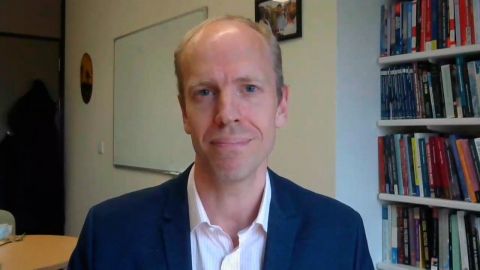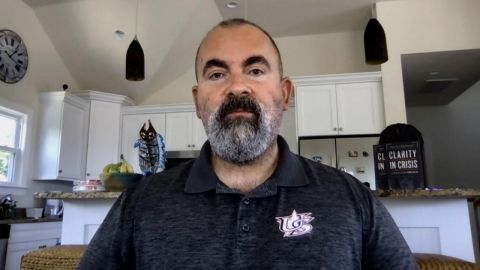Read Transcript EXPAND
MARC POLYMEROPOULOS, AUTHOR, “CLARITY IN CRISIS: LEADERSHIP LESSONS FROM THE CIA: Well, first and foremost, this is quite unusual, of course. We always — we call this an invisible wound. Many of us have said, subsequent to getting injured, we wish we had been shot. We wish there was a gunshot wound to show people. But it really was damaging in the beginning when people were discounting many of us. And it happened to me even as — when I was hit in December of 2017, but everything from the FBI’s report, to the medical staffs of, frankly, both the CIA and State Department, particularly when these attacks first occurred. It’s a story of pretty gross government incompetence, because, after all, we make a pact as actual national security officials. I did a lot of unusual things for the CIA, but I always knew that the leadership should have my back if I got jammed up, if something bad happened to me. And that just didn’t happen. And that was a really tough pill to swallow.
BIANNA GOLODRYGA: Well, it seemed that leadership finally did pay attention and take this seriously, in particular, CIA leadership and the confirmation hearing for Bill Burns. He addressed this head on. Listen to this.
(BEGIN VIDEO CLIP)
WILLIAM BURNS, CIA DIRECTOR: I do commit to you that if I’m confirmed, I will make it an extraordinarily high priority to get to the bottom of who’s responsible for the attacks that you just described and to ensure that colleagues and their families get the care that they deserve.
(END VIDEO CLIP)
GOLODRYGA: CIA leadership and the director followed up on this pledge?
POLYMEROPOULOS: They have. And I give Director Burns an extraordinary amount of credit. He’s taken a personal interest in my case and the cases of other CIA officials. He’s met with us personally. He’s visited Walter Reed’s National Intrepid Center of Excellence, where we were treated. So, there’s been a huge turnaround. And, frankly, Director Burns deserves a lot of credit. That said, this is not something that’s been uniform across the government. I think, as far as my colleagues at the State Department, I hear from them all the time. The State Department is not done the same. And I think they’re lagging behind on this. So we still need this whole-of-government approach, so all the agencies that are affected, ultimately, so the personnel get the medical care that they deserve.
GOLODRYGA: And we still don’t have the exact culprit, right? But given your expertise in the CIA, your background and those that you have spoken with and your colleagues that have experienced this as well, do you think that Russia is behind this?
POLYMEROPOULOS: So, I think there’s a strong — there’s a circumstantial case right now that it’s Russia. And perhaps there’s more. I have been out of the intelligence community for some time.
About This Episode EXPAND
Sunday is World Refugee Day, an international day designated by the United Nations to honor refugees around the world.
LEARN MORE



